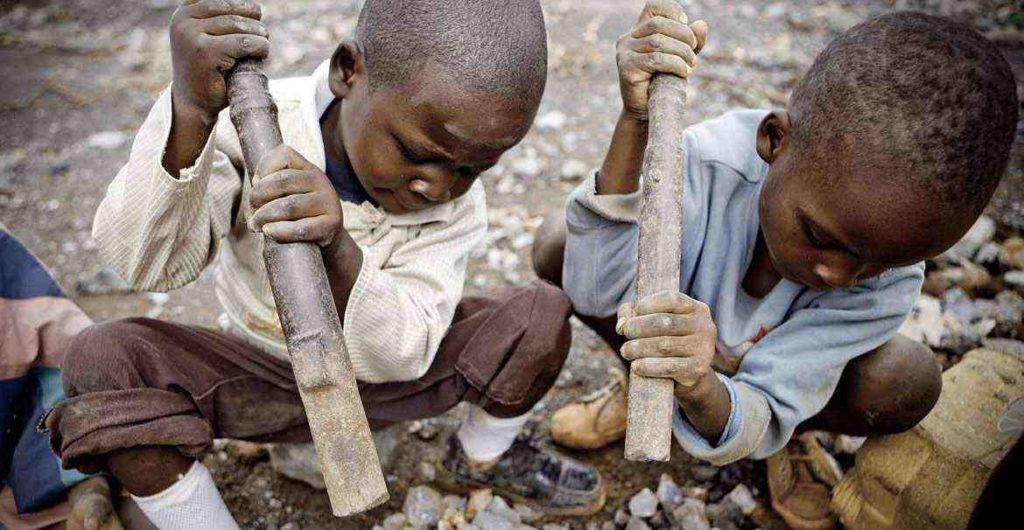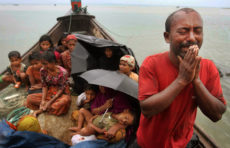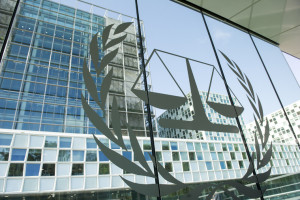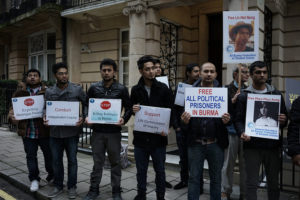 By Lauren Satill
By Lauren Satill
This year, several countries, including the United Kingdom, France, India, and Norway, all set targets to stop the sale of diesel and petrol cars within the next 8-23 years. These are bold steps towards significantly reducing carbon emissions and improving the prospects of a sustainable global environment. Consequentially, there has been exponential growth in demand for certain metals, namely cobalt, and therefore, growth in the extractive industry. This industry is historically fraught with human rights abuses and the promulgation of this ‘green movement’, towards all electric vehicles, may further aggravate human rights abuses.
Electric car batteries are lithium ion batteries, made from graphite, lithium salts, and a cathode (which consists of 80% Nickel, 15% cobalt, and 10% Aluminium). Whilst it makes up a seemingly insignificant part of these batteries, cobalt sources are depleting and human rights within the extraction business is being overlooked at the hands of the growing demand for electric cars.
In 2016, it was estimated that around 65% of the world’s supply of cobalt is sourced from the Democratic Republic of the Congo (DRC). In January 2016, Amnesty International released a report on the conditions of cobalt mines in the DRC. The report found children as young as 7 working in artisanal mines with little to no protective equipment. On average, children and adults working in these mines earn US$1-3 per day. This information could only be collected from ‘artisanal’ mines as multinationals refused to cooperate with Amnesty International. Nonetheless, their impact must not be understated as they represent up 20% of the world’s cobalt supply. Continue reading

 By
By  War. A term which traditionally conjures images of uniformed armies, guns, bombs, and other forms of conventional military warfare. Yet the 21st century has seen the rise of a new form of war, one divorced from these traditional methods and means: ‘cyber warfare’.
War. A term which traditionally conjures images of uniformed armies, guns, bombs, and other forms of conventional military warfare. Yet the 21st century has seen the rise of a new form of war, one divorced from these traditional methods and means: ‘cyber warfare’.![A photograph from September 2016 shows a malnourished boy laying on a bed outside his family's hut in Hodaida, Yemen [Abduljabbar Zeyad/Reuters]](../../wp-content/uploads/2017/10/Famine-Yemen-e1506979134944.jpg)
 Uproar about purported ‘abuses’ of diplomatic immunity has not been uncommon, most recently involving the wife of the sitting Head of State of Zimbabwe, Dr. Grace Mugabe.
Uproar about purported ‘abuses’ of diplomatic immunity has not been uncommon, most recently involving the wife of the sitting Head of State of Zimbabwe, Dr. Grace Mugabe.  While a lot of attention has been devoted to North Korea and referendum in Northern Iraq, comments must be made on one of the most tyrannous mass human rights violations of the last couple years. Recently, news on Myanmar and Rohingyas started to hit the headlines again. Graphic pictures and videos from the decades-long conflict zone Arakan, a.k.a Rakhine state, have started to spread in some news and social media sites. Although the State Peace and Development Council of Myanmar does not recognize the Rohingyas as one of the
While a lot of attention has been devoted to North Korea and referendum in Northern Iraq, comments must be made on one of the most tyrannous mass human rights violations of the last couple years. Recently, news on Myanmar and Rohingyas started to hit the headlines again. Graphic pictures and videos from the decades-long conflict zone Arakan, a.k.a Rakhine state, have started to spread in some news and social media sites. Although the State Peace and Development Council of Myanmar does not recognize the Rohingyas as one of the 
 This post exposes a major obstacle facing one of the African regional economic community judiciaries: the
This post exposes a major obstacle facing one of the African regional economic community judiciaries: the  In its 15 years of existence, the International Criminal Court is undergoing an acceptance crisis especially on the African Continent. Political narratives have significantly shaken the Court’s legitimacy and has led to the questioning of its relevance in today’s world.
In its 15 years of existence, the International Criminal Court is undergoing an acceptance crisis especially on the African Continent. Political narratives have significantly shaken the Court’s legitimacy and has led to the questioning of its relevance in today’s world. In February, the Office of the United Nations High Commissioner for Human Rights (OHCHR) issued a
In February, the Office of the United Nations High Commissioner for Human Rights (OHCHR) issued a